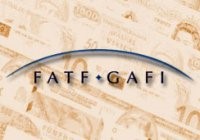-

28 June, 2010
EAG experts took part in the Plenary as well as the EAG member-state delegations from China, Russia and Turkmenistan which joined the Group in June.
The key issues of the agenda included enhancing FATF cooperation with the FSRBs and strengthening FSRBs’ position in the regions for broader implementation of FATF standards.
Review of situation in non-cooperative and high risk jurisdictions was presented by the ICRG which resulted in an update of the two FATF public documents issued in February 2010:
- FATF Public Statement
- Improving global AML/CFT Compliance: On-going Process
EAG was granted associate member status within the FATF
The Eurasian group on combating money laundering and financing of terrorism was granted associate member status within the FATF as approved of by the FATF Plenary meeting.
Becoming an associate member of the FATF will allow EAG to intensify its cooperation with the FATF and other FSRBs. Now all the EAG member states which are not FATF members will be able to engage in the FATF activities including Plenary meetings, Working groups and mutual evaluations. The FATF members will take part in the EAG work.
The EAG application for the associate membership was fully supported by the FATF member states and international organizations. Thus the FATF has acknowledged the progress made by the EAG in assisting the countries of the region in developing national AML/CFT systems.
FATF membership was expended
The FATF welcomed India as a full member of the FATF. Now 34 countries and two international organizations are FATF members.
FATF President/FSRBs Chairmen meeting
On the occasion of the FATF 20th anniversary former FATF Presidents and FSRBs Chairmen gathered in Amsterdam. The participants of the Plenary noted significant FATF contribution into ensuring global financial system security due to implementation of 40+9 FATF Recommendations which are recognized as international AML/CFT standards.
The FATF President Mr. Paul Vlaanderen held a meeting with the FATF-style regional bodies’ Chairmen and Secretariats. EAG Executive Secretary Mr. Igor Nebyvaev took part in the meeting on behalf of the EAG Chairmen Mr. Oleg Markov. As a result of the meeting it was decided to enhance cooperation between the FATF and FSRBs regarding mutual evaluation procedures (in terms of exchanging evaluators) and implementation of unified risk assessment approaches.
ICRG procedures
Following the G20 call for action the FATF continued review of the situation in non-cooperative and high risk jurisdictions and updated its public documents of February 2010.
Taking into account the progress of Turkmenistan in improving its AML/CFT regime and the fact that Turkmenistan joined the EAG in June, the FATF Plenary approved of removing the country from its Public Statement. Turkmenistan will remain under FATF monitoring in the framework of the on-going process of improving global AML/CFT compliance among other countries with strategic AML/CFT deficiencies which have developed an action plan with the FATF and provided a written high-level political commitment to address the identified deficiencies. This language replaces all previous public statements made by the FATF regarding Turkmenistan.
The EAG mutual evaluation of Turkmenistan will be held in November 2010 which will assess further development of the country’s national AML/CFT regime.
Angola, Ecuador, Ethiopia and Pakistan have been also moved from the Public Statement dated 18 February 2010 to the public document ´Improving Global AML/CFT Compliance: On-going Process”dated 25 June 2010. The FATF welcomes these commitments and looks forward to working with these countries to implement their action plans.
These changes reveal not only the progress made by the jurisdictions but also show the flexibility and effectiveness of the FATF/FSRBs procedures which take into account the latest update on the situation in the reviewed countries.
Russia submitted its first follow-up report to the FATF
The report covers Russia’s progress in enhancing national anti-money laundering system over the past two years since FATF/MONEYVAL/EAG mutual evaluation in 2008. Previously Russia successfully defended similar reports at the MONEYVAL (September 2009) and EAG (December 2009) Plenaries.
FATF typology research
The following typology research results were approved by the FATF Plenary:
- Money Laundering through money remitters and currency exchange providers (MONEYVAL)
- Global ML/TF Threat Assessment (the UK, the Netherlands and GIABA).
Future typology research will be focused on the following highly relevant topics:
- Human trafficking (OGBS)
- Organized maritime piracy (the Netherlands)
FATF strategic priorities under the Mexican presidency in 2010-2011
Mr. Luis Urrutia Corral, the FATF President in 2010-2011, announced the future work priorities. They include further actions on reviewing situation in non-cooperative and high risk jurisdictions.
In response to the G20 call for action, the FATF has also committed to publishing information to raise awareness of how AML/CFT measures may be leveraged to combat corruption and the FATF’s ongoing work to strengthen standards in this area (including standards on client and beneficiary owners identification, and enhancing financial transparency).
Further development of cooperation with the FSRBs will remain one of the key priorities of the new FATF President.
The FATF will also focus on enhancing collaboration with law enforcement agencies and private sector institutions.
In the framework of assisting low-capacity countries the FATF will explore possibilities to contribute to the processes aimed at financial inclusion by providing for transparency and security of the international economy.

 Login to your account
Login to your account Eng
Eng Рус
Рус